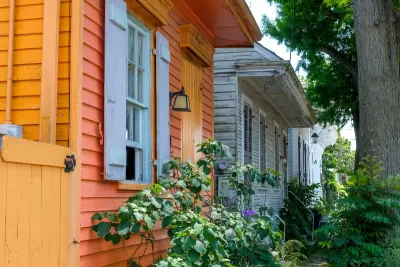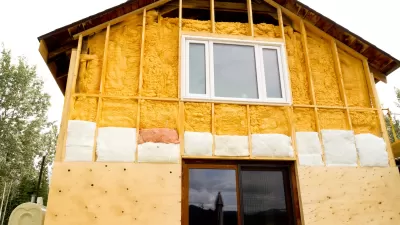While renters and homebuyers’ challenges dominate the headlines, they aren't the only ones wrestling with maintaining decent housing.

A recent Shelterforce article by Daniel McCue, senior research associate at the Joint Center for Housing Studies of Harvard University, highlights the growing financial challenges faced by low-income homeowners. This trend is often overshadowed by the focus on rising home prices and interest rates affecting potential buyers.
Key findings include:
- Rising cost burdens: Between 2019 and 2022, the number of cost-burdened homeowners (those paying over 30% of income on housing) increased by 3 million to 19.7 million households
- Most affected groups: Households earning less than $30,000 per year (70% burden rate); Homeowners aged 65 and over
- Contributing factors: Surging home insurance costs (up 21% nationally, 35% in Florida); Increasing property taxes (4.1% average rise nationwide); Higher maintenance and repair costs for aging homes
- Equity gains not a universal solution: While average homeowners gained $200,000 in equity over four years, accessing this wealth can be costly or disruptive.
- Limited assistance programs: The Homeowner Assistance Fund (HAF) helped 500,000 households but is now closed in most states; LIHEAP offers energy cost assistance but is limited in scope
- Emerging solutions: Energy efficiency programs, including new funding from the Inflation Reduction Act; State and local property tax relief initiatives; Home repair financing programs and grants
- Policy implications: McCue emphasizes the need for ongoing assistance programs to address homeowner cost burdens before they reach crisis levels, potentially avoiding more costly interventions in the future.
This trend underscores the importance of supporting existing low-income homeowners to maintain housing stability and realize the full benefits of homeownership.
FULL STORY: House Poor: Low-Income Homeowners Struggle in the Shadows

Maui's Vacation Rental Debate Turns Ugly
Verbal attacks, misinformation campaigns and fistfights plague a high-stakes debate to convert thousands of vacation rentals into long-term housing.

Planetizen Federal Action Tracker
A weekly monitor of how Trump’s orders and actions are impacting planners and planning in America.

In Urban Planning, AI Prompting Could be the New Design Thinking
Creativity has long been key to great urban design. What if we see AI as our new creative partner?

King County Supportive Housing Program Offers Hope for Unhoused Residents
The county is taking a ‘Housing First’ approach that prioritizes getting people into housing, then offering wraparound supportive services.

Researchers Use AI to Get Clearer Picture of US Housing
Analysts are using artificial intelligence to supercharge their research by allowing them to comb through data faster. Though these AI tools can be error prone, they save time and housing researchers are optimistic about the future.

Making Shared Micromobility More Inclusive
Cities and shared mobility system operators can do more to include people with disabilities in planning and operations, per a new report.
Urban Design for Planners 1: Software Tools
This six-course series explores essential urban design concepts using open source software and equips planners with the tools they need to participate fully in the urban design process.
Planning for Universal Design
Learn the tools for implementing Universal Design in planning regulations.
planning NEXT
Appalachian Highlands Housing Partners
Gallatin County Department of Planning & Community Development
Mpact (founded as Rail~Volution)
City of Camden Redevelopment Agency
City of Astoria
City of Portland
City of Laramie





























